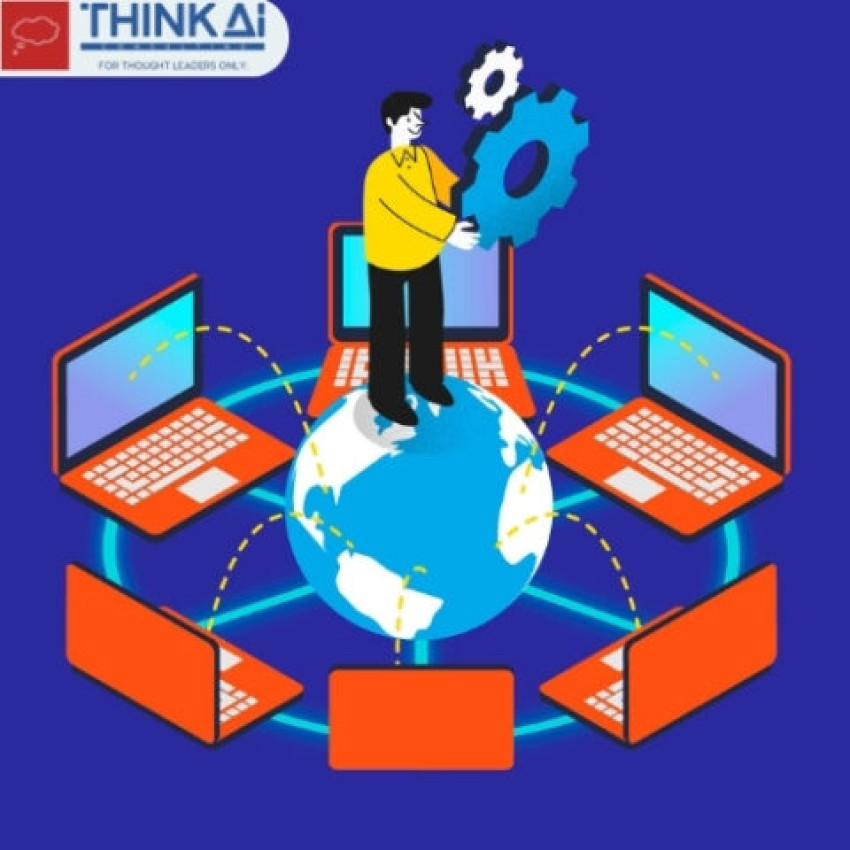
In the current era of digital innovation and transformation, the seamless collaboration of systems and technologies within an enterprise is paramount. This entails harmonizing processes around applications and systems, as well as the individuals overseeing these processes.
The advent of digital transformation has revolutionized business operations, with a growing emphasis on establishing Enterprise Resource Planning (ERP) integration.
The pivotal question emerges: How can organizations elevate their strategies for managing enterprise system integration?
Enterprise integration, broadly defined, involves the amalgamation of processes, technologies, networks, and structures utilizing IT-enabled systems.
Enterprise integration services empower diverse applications to function cohesively. Comprising a suite of solutions, the primary objective is to unify incompatible systems through software, hardware, or a combination of both.
Given the multitude of systems and applications concurrently operational in enterprises, complexities can arise, impeding efficient process management and hindering progress.
Enterprise Integration Platform: The Benefits &Significance
The cornerstone of this integration is the Enterprise Integration Platform (EIP), a software system facilitating seamless communication and information exchange among various applications, systems, and data sources.
EIPs function as a critical infrastructure component, serving as a central hub for managing data flow between disparate systems. This enables organizations to streamline business processes, enhance efficiency, and mitigate errors.
The business advantages of deploying Enterprise Integration Software are multifaceted.
A contemporary EIP empowers companies to recognize and address integration needs effectively.
It facilitates the integration of systems, applications, and data, adhering to partner, compliance, and customer Service Level Agreement (SLA) mandates. Key benefits include enhanced system interconnectivity, real-time updates, increased productivity, and workflow automation.
Enterprise Integration: Problems and Challenges
Nevertheless, challenges accompany the promise of enterprise integration software. Complexities arise from connecting myriad systems, requiring alignment between IT and business objectives. Control limitations manifest as integration developers grapple with diverse business applications. Standardizing data exchange proves challenging due to the varied formats used by messaging systems and applications.
Enterprise integration issues can impede business growth, resulting in increased costs, reduced efficiency, suboptimal customer experiences, and a competitive disadvantage. To navigate these challenges, modern businesses are increasingly turning to enterprise integration services, which can be both cost-effective and efficient for overall business operations as well.
The urgency for enterprise integration services stems from the imperative of business transformation. Legacy technologies hinder growth by limiting agility and speed, obstructing the seamless adoption of new technologies.
Efficient and rapid onboarding is critical, necessitating support for multiple protocols and data formats. An ‘outside-in’ approach prioritizes external customer and trading partner relationships, fostering streamlined B2B, application, and data integrations.
Improper integrations can be costly, leading to financial losses and degraded customer relationships. The remedy lies in consolidating integrations onto a single platform through an enterprise integration platform. Key features to seek in enterprise integration software include robust data integration, comprehensive monitoring and management capabilities, ease of use, and timely, responsive support.
Building a successful enterprise integration plan involves creating a roadmap, defining metrics for strategy effectiveness, and minimizing redundancies. The benefits of good integration encompass agility, visibility, efficiency, time and cost savings, and accelerated growth.
In Conclusion
As technology evolves, enterprises must choose the right enterprise integration platform to stay ahead. We offer a scalable solution for any-to-any hybrid integration, data transformation, secure file transfer, and end-to-end visibility.
Ultimately, selecting the appropriate enterprise integration platform is pivotal for achieving increased value, meeting customer needs, and sustaining innovation in the ever-changing landscape of technology and customer expectations.




